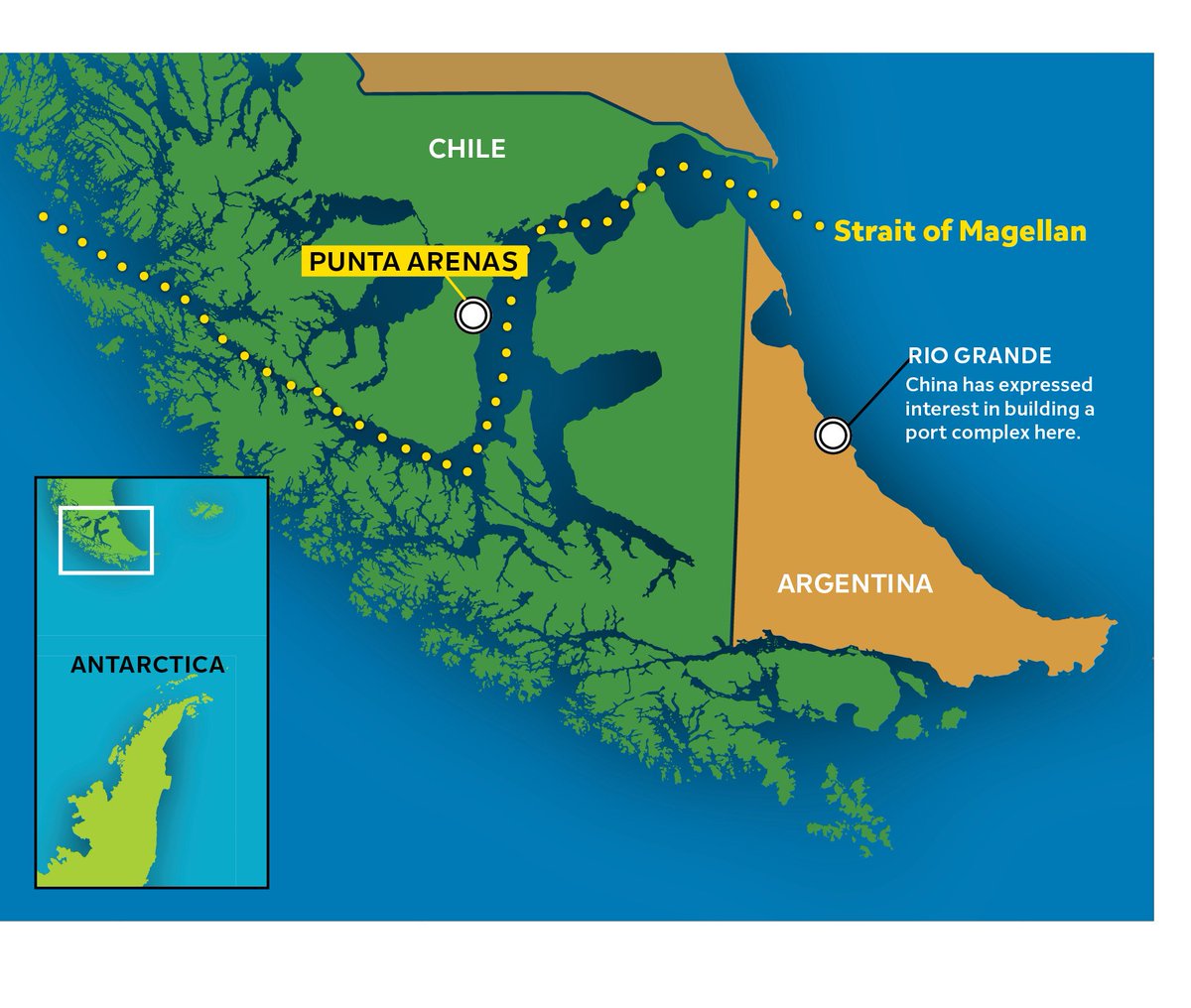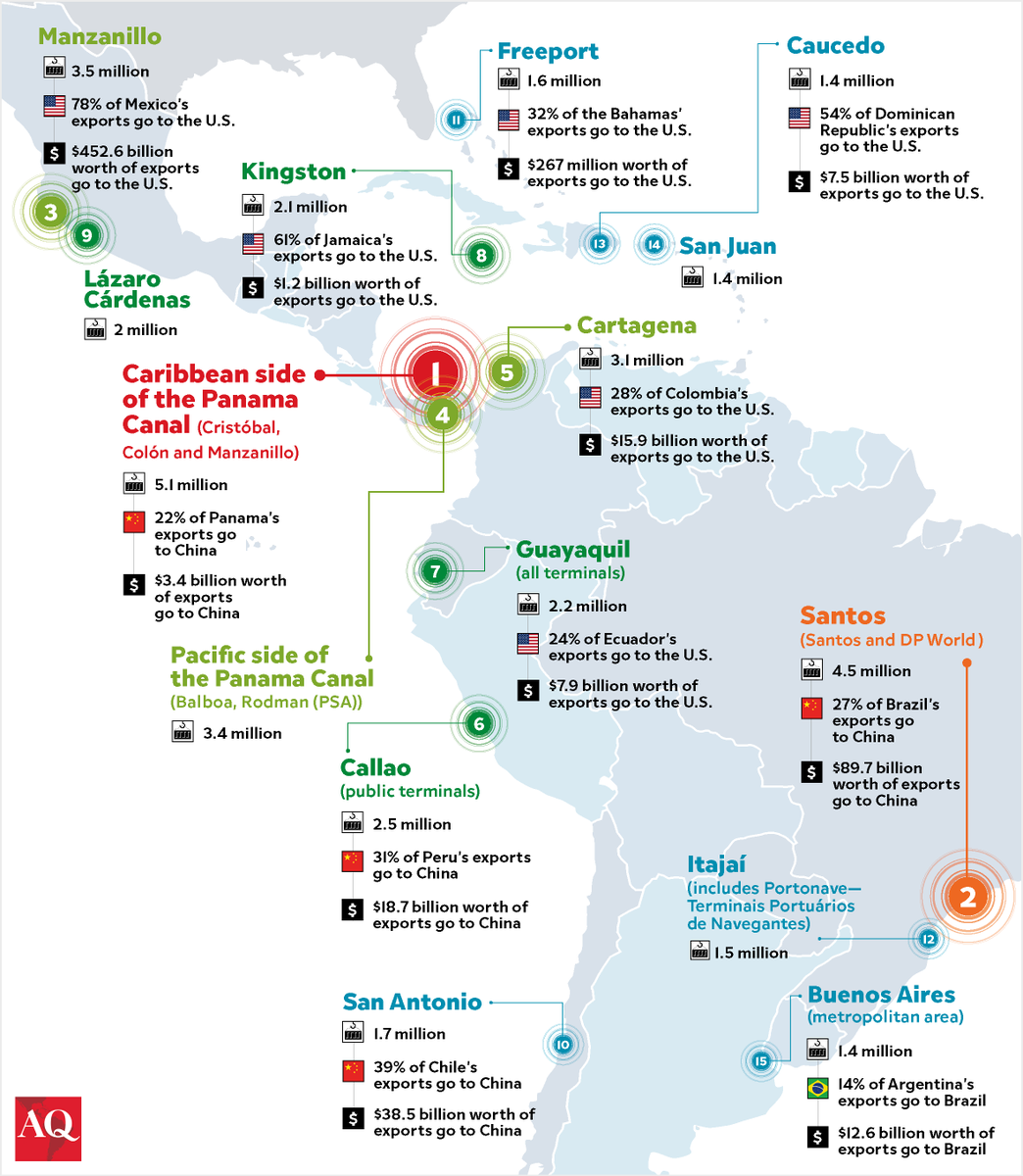Why is a port at "the end of the world" suddenly gaining interest from both Washington and Beijing? 1/x 

Punta Arenas, Chile, has seen shipping traffic nearly double in the last 4 years -- as wars choke shipping lanes in the Middle East and Europe, climate change snarls the Panama Canal and technological breakthroughs such as green hydrogen come to the fore. 

The Strait of Magellan is also a jumping off point for exploration / exploitation of Antarctica, expected to become even more strategic as the Earth warms. US Southern Command chief Laura Richardson visited the area last year. 

To keep pace with rising interest, Chile's government recently announced a 5-year, $400 million investment plan to upgrade ports and infrastructure in the region. Punta Arenas is also, intriguingly, President Boric's hometown 

Interest in Latin America's seaports is surging due to nearshoring, climate change & new industries. Here's our graphic showing the top 10 ports in the region by shipping volume 

For a deeper look at the race for global influence at South America's southern tip, and how governments like Chile and Argentina are trying to seize the moment, here is our new cover story, reported from Punta Arenas by the great @GaripPatricia
americasquarterly.org/article/why-th…
americasquarterly.org/article/why-th…
• • •
Missing some Tweet in this thread? You can try to
force a refresh













